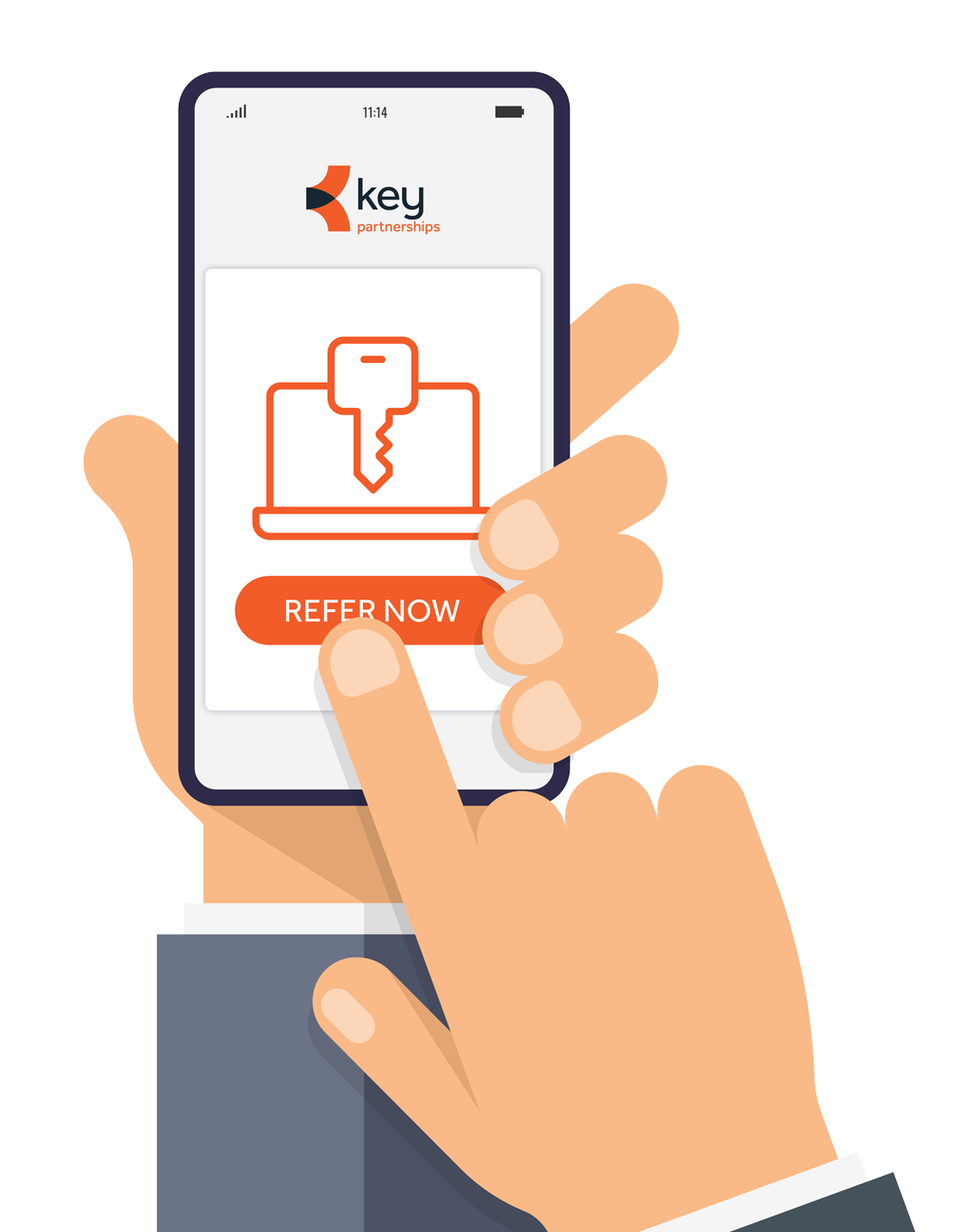How Key Partnerships can help
We provide a robust referral process to help you broaden your advice proposition without compliance responsibility.
Key Partnerships work with specialist equity release advisers from The Equity Release Experts. Our whole-of-market advisers have their fingers on the pulse to help find clients a solution to meet their needs.
Alongside supporting your clients, for every case that completes, you could also add a valuable income stream to your business. In 2022, the average Key Partnerships referral fee paid on each completed case was £2,252.
